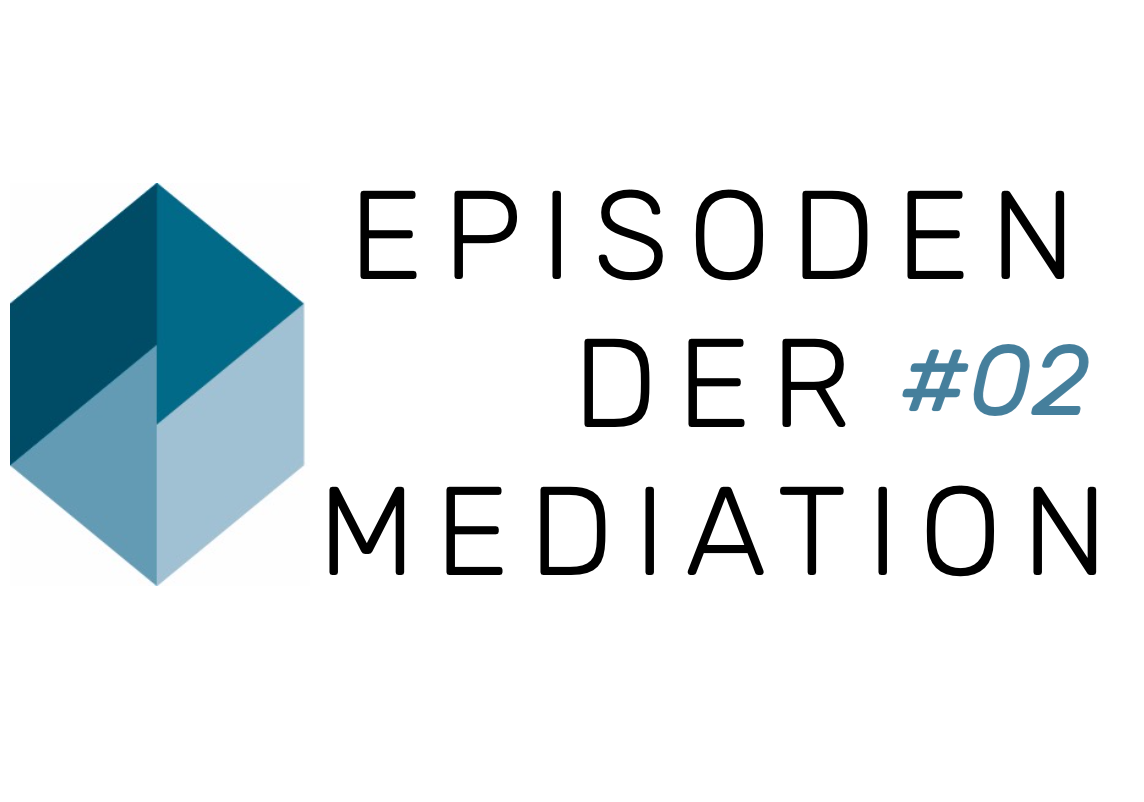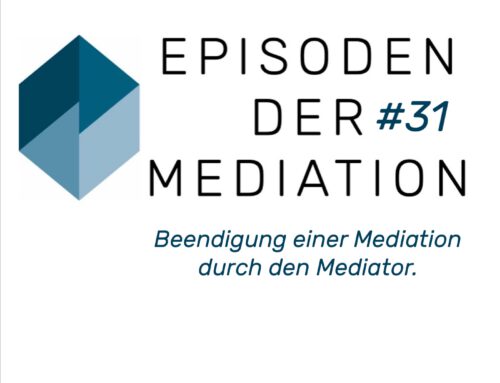INKOVEMA Podcast „Episodes of Mediation“
#02 EdM – Confidentiality waivers and exceptions to confidentiality obligations
If parties are in favour of audiences – this raises legal and conflict dynamics issues.
Episodes of mediation. The podcast on practical questions about mediation and conflict management.
This is episode 2 – Waiver of confidentiality. Is it even possible to waive confidentiality in mediation?
Case situation:
It was a while ago, maybe two or three years ago, when I raised the issue of confidentiality in organisational mediation, one of the parties to the conflict said that he didn't need it and that everyone in the company could easily know how he was being treated badly. And the other also – only the other way round.
I was a little perplexed at first – and then relieved, because it does make the work a lot easier. But first things first, because the declared intention of the parties to the conflict that the proceedings should not be confidential raises a number of questions – about the legal significance and the conflict dynamics.
Firstly, the legal significance:
- Mediators are proud and advertise the fact that the mediation process offers confidentiality – in contrast to public court proceedings. Confidentiality is regarded by mediators as a valuable asset, almost as a mediation principle.
- Can mediators do without it? Is this legally possible or is it a legal principle that is indispensable and therefore independent of the parties?
- § Section 1 MediationsG "Mediation is a confidential and structured procedure..." – Nevertheless not a constitutive element of mediation. Non-confidential mediation proceedings also remain mediations. They can be broadcast on television or in a football stadium. (Ice-T, for example, has had a programme on Fox TV since 2020 in which he acts as a mediator and settles disputes in his very own way...) The law therefore provides for confidentiality, but the parties can deviate from this.
- Practical tip: It is therefore advisable for the mediator to ensure that this is explicitly addressed and that it is contractually agreed that the agreed confidentiality also leads to confidentiality obligations for the parties. Caution: Even if lawyers are present, it is essential that they are involved. These persons would otherwise be authorised, to be called as a witness if the mediation fails and in the event of a subsequent court case. This does not apply to the mediator him/herself, as Section 4 Mediation Act imposes confidentiality obligations on them.
- If the CPs can contractually justify confidentiality, they can – conversely – also waive it or subsequently release the bound parties again. Does this have specific implications – especially for the practice of mediation in organisations? If the organisation grants mediation and also pays for it so that the parties involved in the dispute reach an agreement and not everyone is more or completely focused on the two parties to the conflict and what they have come up with again..., then it seems quite legitimate that this organisation or its representatives also have an interest in the procedure and its outcome, can legitimately have and also declare it, and may even vouch for it. In this case, the content of the mediation process is not confidential per se, even in the workplace environment. I.e. CONCRETE for mediators: You should definitely address the issue and clarify the need for all parties involved to agree on what form and intensity of confidentiality is desired on all sides. This should be included in the clarification meeting with the specific conflict parties and the client, a representative of the organisation. From this perspective, the often not explicitly formulated desire (or exaggeratedly formulated non-desire) to be informed about the content is an offer to negotiate, but in no way an intention to be informed in violation of the law or the law. The Mediation Act does not provide for mandatory confidentiality – and certainly not from the client, the organisation that requested mediation. (But more on that next time) If the organisation pays for the mediation and grants it to its employees, then it also has an interest in the procedure, the result and information about it. The confidentiality provisions of the Mediation Act do not preclude this.
- However, the situation could be different from the perspective of mediation, i.e. what is the professional understanding of mediators who want to position themselves within the legally provided playground of mediation. Nobody has to use the whole playground. In my opinion, the organisation has a legitimate interest in the mediation process that it has initiated and also belongs at the mediation table. More on this next time. However, if it does not take a seat at the table, e.g. on the assumption that the two parties to the conflict should come to an understanding and work out a solution themselves, then there is no reason to share more than the outcome, and even that is sometimes not necessary. In this case, confidentiality between those present is easily agreed at the beginning.
- What does confidentiality and the possibility of waiver mean for the Mediation person? Well, the mediator is subject to the statutory duty of confidentiality in accordance with §4 MediaitonsG. The parties can release the mediator from this duty of confidentiality. More importantly, however, there are legal exceptions. Three of them.
- Disclosure required to enforce the agreement.
- Reasons of public order (threats to the welfare of the child or general dangers, but not criminal offences that have already been completed...)
- Obviousness and insignificance of facts
- Can mediators do without it? Is this legally possible or is it a legal principle that is indispensable and therefore independent of the parties?
And now to the conflict dynamic side – in the case described at the beginning, it was therefore permissible and possible to want to waive confidentiality in this way, even if no one else was in danger of wanting to be there.
Third parties are highly relevant to the conflict dynamics. Just as mediators, like all other neutral persons, have a socialising, disciplining effect, undecided or biased third parties can have an escalating effect. Or viewed differently: From a certain level of escalation, conflict parties are always endeavouring to support their point of view with others, to forge coalitions with third and fourth parties, or at least to obtain agreement with their own point of view. An audience that can be influenced and then influences others is a grateful ally – this can be observed in every talk show. These people at risk of bias often lead to the discussion mode being stabilised or activated and the CPs try to convince the K opponent more via the audience or at least push them into the minority position. Avoidance persons are also always – at risk of this and therefore train themselves in their training to provide as little evidence as possible for such interpretations, let alone to act in a biased manner themselves.
Thank you very much.
From the enquiry to mediation* What to look out for in a unilateral enquiry?
I look forward to seeing you.
For the moment, thank you for listening in.
Stay with us
Yours, Sascha Weigel.





Leave A Comment